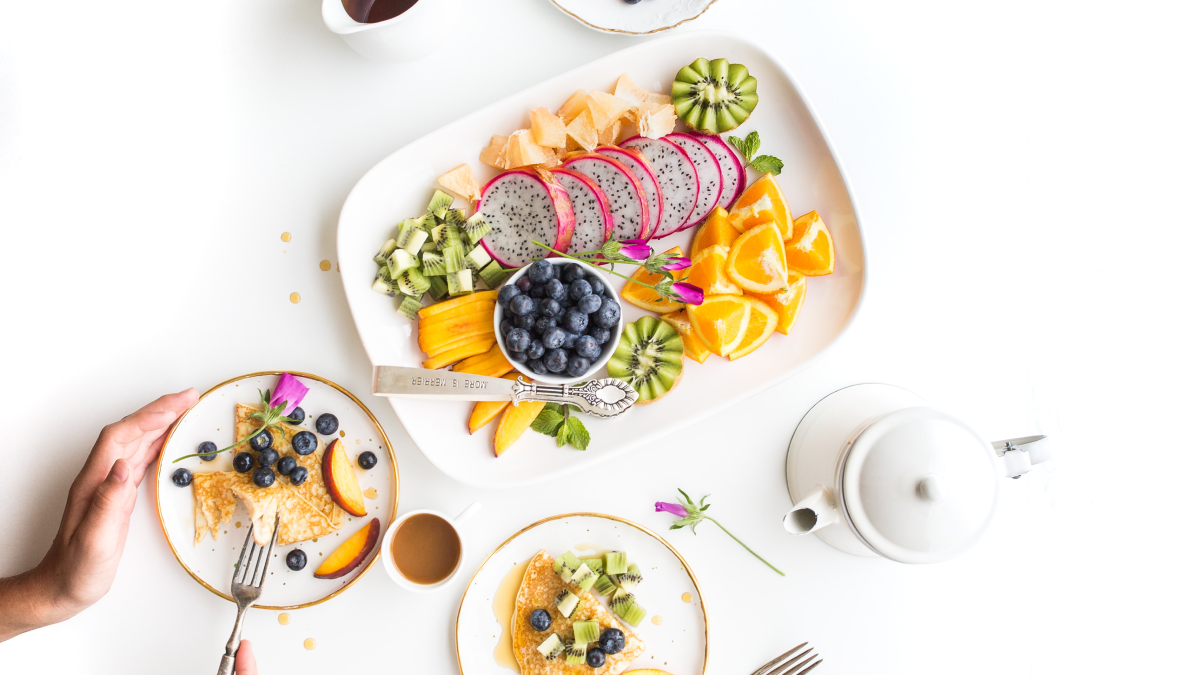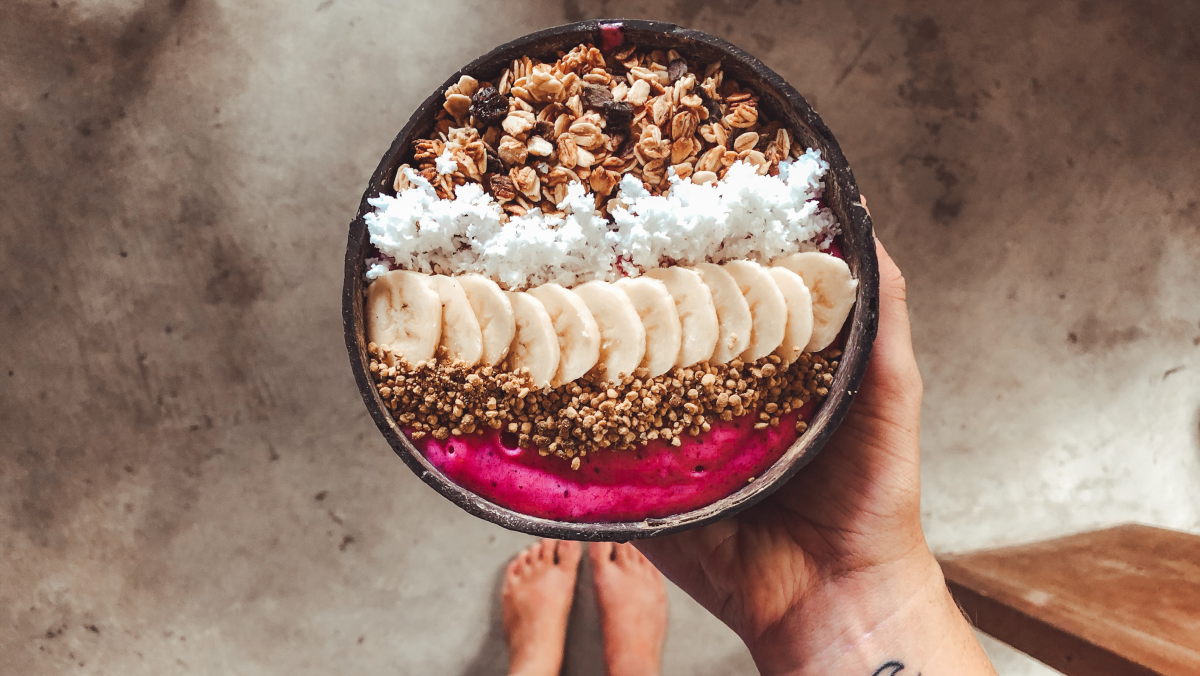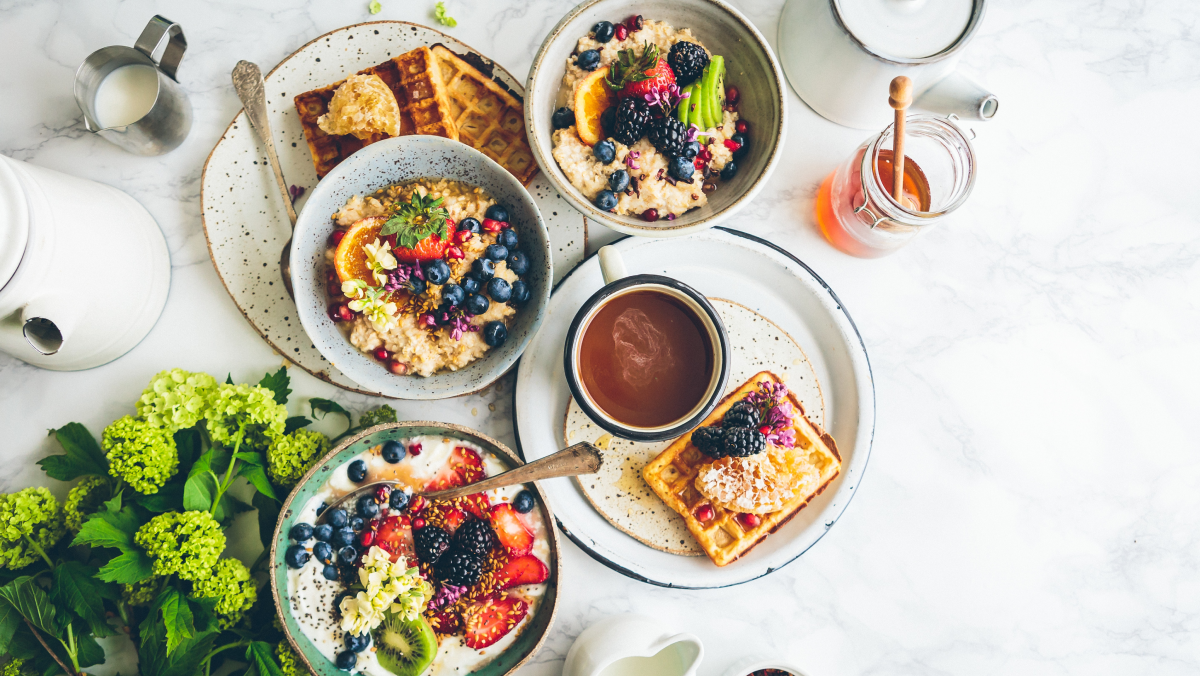
You’ve probably heard one or more of these phrases from the adults in your life: “Breakfast is the most important meal of the day”, “breakfast boosts your metabolism”, and “you need breakfast to be energized all day”.
Sound familiar? Growing up, many of us were told that breakfast was an essential part of our day. But is it an old wives’ tale, or a scientifically proven fact?
In this article, we’re going to delve into myths, truths, and benefits of breakfast.
Myth #1: Eating Breakfast Will Boost Your Metabolism

Answer: Ding, yes! There is some truth to this claim!
For as long as we can remember, a majority of the population has believed that eating breakfast will boost your metabolism.
Have you wondered where that came from? Well, it likely stemmed from the fact that when you eat food, your body activates thermogenesis, the process that helps us digest, use, and store the calories we consume.
While it is true that thermogenesis stimulates your metabolism and your body burns more calories after consuming food, you shouldn’t overestimate those effects.
Although eating breakfast can indeed increase your calorie burn, eating brunch, lunch, tea, or dinner can do the same.
It’s more important to watch what you eat rather than how or when you eat, which brings us to the next myth…
Myth #2: Eating Certain Food for Breakfast Will Boost Your Metabolism

Answer: Sorry, myth! You may lose some weight, however, it is due to other factors!
If you’re into health, wellness, or weight loss, you’ve likely seen advertisements and commercials about foods that fire up your metabolism and expedites weight loss.
Common examples of these magic foods include green tea, celery, capsaicin, lemon, ginger, turmeric, and detox drinks.
Yes, drinking green tea might stimulate your metabolism, but coffee and other caffeine products will have a similar effect. Many “success stories” of detox teas are from people who use the teas as a meal replacement. The change they see on the scale is due to reduced water weight and possibly muscle mass due to undereating.
Although these foods have concrete health benefits, simply consuming them will not make you lose weight. If it sounds too good to be true, it usually is.
Instead of focusing on eating special “health foods”, try adding more whole foods to your diet and using portion control to eat balanced meals.
More Meals Do Not Burn More Calories!

You know that your body burns calories during digestion. So if you’re constantly eating, you’re constantly burning calories… right? Then, does eating six small meals instead of three big ones mean you’re burning more calories?
It’s unlikely.
Many studies have shown that eating multiple small meals throughout the day does not increase your calorie expenditure because the temporary boost in metabolism corresponds to how much you eat.
This means that eating six small meals gives you six small boosts, while eating three large meals gives you three large boosts. In the end, the amount of calories you burn is the same. The thermic effect of food isn’t a weight loss method because it only makes up about one-tenth of your daily caloric expenditure.
Plus, people often grab sugary cereals, muesli, or energy bars in the morning due to the lack of time or energy, and that definitely doesn’t do anything to help your weight loss goals.
Benefits of Eating Breakfast
1. You might feel more motivated to work out in the morning

Eating more doesn’t mean you’re going to be gaining more fat. In fact, an increase in calories can often fuel you to do more physical activity throughout the day.
There are two types of people who work out in the morning: those that prefer doing fasted workouts, and those that feel zombie-like if they hit the gym on an empty stomach.
Of course, there’s the third group of people who don’t like morning workouts at all. If that’s you, try eating breakfast to start your day. Although eating breakfast might not help you magically burn calories, it might just be the final nudge you need to go to the gym in the morning.
Just remember to keep it light because you might feel bloated or nauseous if you exercise on a full stomach.
2. You are less prone to overeating later in the day

People who are used to eating breakfast early in the morning will feel their stomachs growl if they don’t get food down by a certain hour. If you asked them to skip breakfast, they’d be able to eat an extra portion by lunchtime.
When we’re hungry, we often overeat because we don’t pay attention to our hunger cues that are telling us we’re already satiated. We often get carried away in the heat of hunger, which is why it might be a good idea to eat before you get hungry.
Ultimately, you should go with an eating schedule that helps you stick to your goals without making you go hungry or overeat. If this means skipping breakfast so you have a better appetite for lunch, go for it. If it means having breakfast so you aren’t starving by noon, that works, too.
Registered dietitian Jill Weisenberger told Very Well Fit that breakfast can be a useful weight loss tool – not because it gives you a calorie-burning boost, but because it can support healthy eating habits for weight management.
3. You will be able to eat more fruits and veggies

According to Cooking Light, registered dietitian Cynthia Sass believes the advantage of breakfast is that is allows you to consume more food groups, such as fruits and vegetables, that you might normally be able to fit into your other meals.
This 2005 study and this 2014 study supports Cynthia’s statement, as the studies found that people who eat breakfast usually have a healthier diet that consists of more fibre and micronutrients.
The next time you make breakfast, switch out sugary cereals from whole-grain cereals, high-sugar yogurt to greek yogurt, and fruity snacks to fresh fruit and vegetables.
Here are some of our favourite nutrient-dense breakfast ideas:
- Overnight oats with nut butter and fresh fruits
- Wholemeal wraps with veggies and eggs
- Greek yogurt with homemade granola, nuts, seeds, and fresh berries
- Whole-grain bread with vegetables, nuts, seeds, and nut butter
- Protein pancakes with bananas and honey
- Hearty salad with greens, avocado, and legumes
- Omelette with lots of vegetables
- Superfood smoothie with fruits and vegetables
The Bottom Line

Whether you want to eat breakfast or skip it, the most important thing is that you listen to what your body needs. If you’re hungry when you wake up, give your body the nourishment it deserves. But if you wake up without an appetite, don’t force yourself to eat in the morning.
Kids are an exception, because children who don’t eat breakfast can get restless, irritable, or find it harder to focus. Additionally, they usually eat less than adults throughout the day, which can make it hard for them to consume the necessary vitamins and minerals if they only eat lunch and dinner. But one thing is for sure: eating breakfast boosts your metabolism. As with all health tips and changes, it is always recommended to consult your health professional before making any major lifestyle changes.
Want to learn more about what you should eat in a day? Wondering which nutrition or diet is the best for your body type? Head over to CircleDNA.com to find out!






Comments are closed.